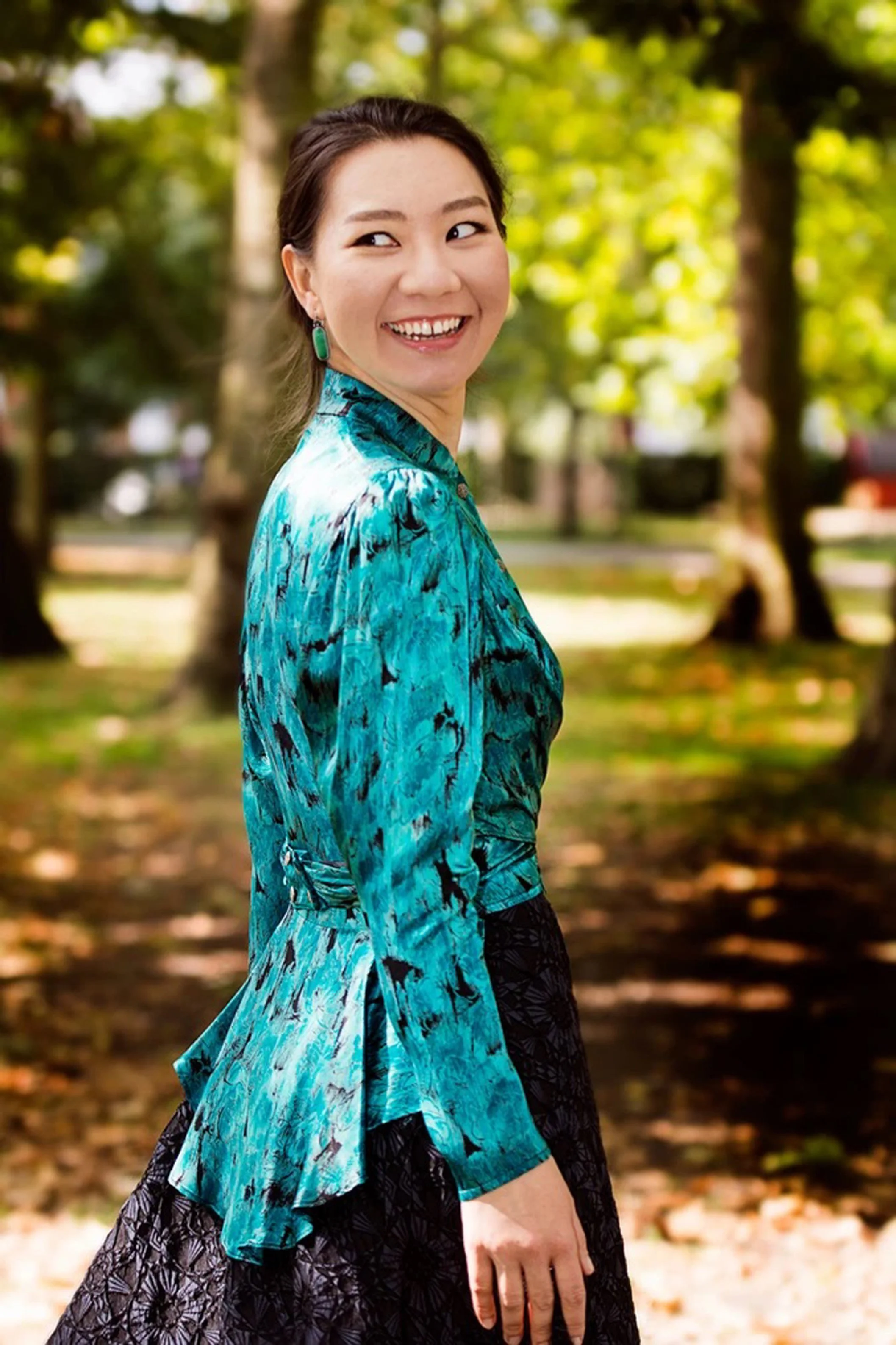Dina Duisen (piano). Royal Concert Hall, Nottingham, 15 December 2024, 5☆☆☆☆☆. Review: William Ruff.
Photo credit: Royal Concert Hall
Dina Duisen (piano). Royal Concert Hall, Nottingham. 15 December 2024,
5☆☆☆☆☆. Review: William Ruff.
“An entertaining, exhilarating recital from an artist who knows how to make friends with her audience.”
This is the third time Kazakh-British pianist Dina Duisen has played in the Sunday Morning Piano Series at the Royal Concert Hall. And she certainly seemed to be very much at home, chatting to the audience in a delightfully relaxed manner before, during and after her recital. The programme consisted of four pieces, all featuring variations on a theme, the sort of music which allows composers to show off their ingenuity and which can often demand considerable dexterity on the part of performers.
Dina started with the daunting version of Bach’s Chaconne by the Italian/German composer Ferruccio Busoni. Bach originally wrote it as the concluding movement of his Partita No 2 for solo violin. Busoni thought the music really deserved bigger forces than just a single violin, so in his head he imagined how it might have sounded if Bach had written it for the organ. And then Busoni took what was in his head and wrote a version of that for piano. The result is something completely pianistic: sonorous, noble and hugely virtuosic – and Dina Duisen clearly relished the many challenges - intellectual, technical and physical - it offers its performers.
Next came Mozart’s Variations on “Ah vous dirai-je, maman”, a nursery tune which we know better as “Twinkle, twinkle, little star”. Here the pianist needs the lightest of touches (as well as total precision) to convey the work’s charm and innocence. Dina Duisen ensured that textures were always crystal-clear and that the music never stopped smiling, even in the slower, more meditative variations.
Schubert was represented by his Impromptu No 3, a set of variations on one of his best-loved tunes, from the incidental music he wrote for the play Rosamunde. Each variation creates its own world: the third takes us into the world of tragic opera; the fifth skips along without a care in the world. And then at the end the tune is once again transformed through deep, rich keyboard textures and imbued with a poignant sense of nostalgia.
The advertised part of Dina’s recital ended with a dazzling work-out for the fingers. Book One of Brahms’ Paganini Variations tests the performer’s technique in ways which sometimes suggest an acrobat’s high-wire act. Brahms didn’t hold back when it comes to difficult technical challenges. He has the pianist leaping about the keyboard, sometimes with two hands, sometimes just with one. There are trills at the top of wide-spread chords, the two hands playing different rhythms and tricky things like octave tremolos, swooping arpeggios and all sorts of other difficulties. Dina Duisen clearly doesn’t opt for an easy life. She carried off each variation with poise and assurance, concluding the set in scintillating style.
However, Dina didn’t end her entertaining and exhilarating recital there. Instead she wished the audience a Happy Christmas with two encores: the Dance of the Sugar Plum Fairy from Tchaikovsky’s Nutcracker and Rimsky-Korsakov’s Flight of the Bumble Bee.
Dina Duisen playing in the Sunday Morning Piano Series at Nottingham’s Royal Concert Hall
